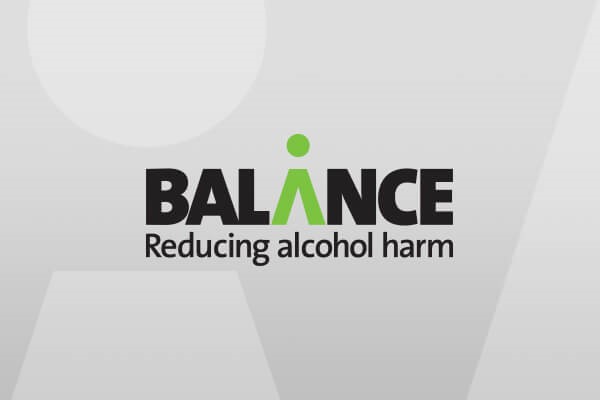North East mouth cancer survivor speaks out to raise awareness
A North East man who was diagnosed with mouth cancer in his thirties has backed Balance, the North East Alcohol Office, as it aims to highlight the link between alcohol and the condition.
Gordon Mullen from Bellingham, Northumberland, underwent surgery to remove part of his tongue followed by gruelling sessions of radiotherapy and chemotherapy after he was diagnosed in 2008.
It was only after a prolonged period of discomfort and pain in his mouth that doctors diagnosed the cancer and were able to begin treatment.
As part of Mouth Cancer Action Month, Gordon, who runs his own IT company, is supporting Balance’s efforts to raise awareness of the small changes in lifestyle – such as cutting back on the amount of alcohol consumed – that can reduce a person’s risk of developing the condition.
Research has shown that those drinking above the recommended limits, which is 2-3 units for women and 3-4 for men, are 2.5 times more likely to develop cancers of the mouth and throat.
The 44-year-old said: “My mouth had been sore for some time but I initially just thought it would go away and sometimes it did but then it would keep coming back. I more or less put off dealing with it for a year or so but it was when I noticed a white patch on my tongue that I knew something wasn’t right.
“I went to see the dentist and they referred me to the hospital and that’s how I ended up being diagnosed. At the time I had barely even heard of it. It wasn’t until the white patch appeared that I started to think about it and I actually noticed a poster when I was visiting the dentist warning people to be aware of mouth cancer.
“You always get the impression with these things that you have to be old, a smoker or a heavy drinker to be at risk but I wasn’t any of these things so I didn’t think it would affect me.”
Following Gordon’s diagnosis he had surgery to remove a one centimetre section on the right side of his tongue. He also had surgery on his neck so doctors could see whether his lymph nodes had been affected – followed by six weeks of radio and chemotherapy.
“It was brutal, really horrible,” said Gordon. “The side effects were horrific; you can’t eat, your whole mouth is covered in blisters, you can’t speak – I ended up with a feeding tube up my nose. I had to learn how to eat and speak again afterwards because the tongue doesn’t work the way it used to.”
Although Gordon has since recovered, the effects of the disease still have an impact on his life and everyday things such as eating out with family or friends is something he worries about.
Gordon hopes his story will help make others aware of mouth cancer and encourage them to take steps to try and reduce their risk of developing the condition such as cutting back how much they drink
He added: “I had always been a social drinker but now I don’t drink at all. I think it’s important for people to know more about mouth cancers and what they can do to try and limit their risk.”
Mouth Cancer Action Month, which is run by the British Dental Health Foundation and sponsored by Denplan with support from Dentists’ Provident, the Association of Dental Groups and the Mouth Cancer Foundation, takes place throughout November and aims to raise awareness of mouth cancer and promote the importance of early detection.
Cancers can occur in any part of the mouth, tongue, lips, and adjacent areas like the throat, salivary glands, pharynx, larynx, sinus, and other sites in the head and neck area. Research has shown that alcohol is responsible for around 30% of mouth and throat cancers.
Colin Shevills, Director of Balance, said: “Mouth Cancer Action Month provides an ideal platform to help raise awareness of the link between alcohol and cancers of the mouth and throat – a link that not many people may be aware of.
“Nationally, the number of mouth and throat cancers have increased by nearly a fifth in the last five years so more needs to be done to help tackle the growing number of cases. Drinking above the daily recommended limits increases your risk of developing the disease so we’re urging people in the North East to think about how much they’re drinking and try to reduce their alcohol intake.”
Dr Tony Newton, Chair and President of the British Dental Health Foundation who lives in Northumberland, said: “Raising awareness of mouth cancers is hugely important so people know what to look out for. Mouth ulcers that don’t heal within three weeks, red or white patches and unusual lumps or swellings in the mouth are all warning signs that need to be checked out. The earlier these cancers are detected, the quicker they can be treated and the better the outcome.
“There are big risk factors for mouth cancer including overuse of alcohol and tobacco, so educating people on these risk factors means they can make informed decisions about their behaviour. The amount of alcohol consumed is a personal choice over which every one of us has personal control, and quite apart from the other health benefits of limiting alcohol intake, it reduces the chance of getting mouth cancer.”
To find out more about mouth cancers and Mouth Cancer Action Month, visit www.mouthcancer.org
